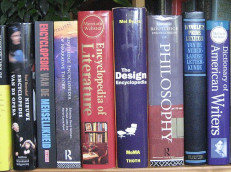This book was definitely up there among my favourites of this term. It was simultaneously light and dealt with themes that I connected with, so I was able to engage with it more than I could with some other books we read. There were many themes involved in the novel, but the one that resonated with me the most was that of identity. On pages 117 and 118 (of my pdf – not sure what the page numbers are for a physical copy), there is a discussion of nationality and identity. I found it funny that Clarice Lispector was mentioned; though I didn’t personally read her book this term, it still felt like a fun little crossover.
As someone who has Iranian heritage, was born and raised in the UK, and is now living in Canada, I’ve thought a lot about how nationality may or may not be part of our identities. I would still consider myself Iranian if I didn’t have citizenship, though I’m not sure that I’ll ever consider myself Canadian even if I get the passport. I just think it’s interesting how some places become ingrained in our identities, while some don’t ever get to that status.
Another quote that got the wheels in my head turning was: “Pacifism, my dear brother, is like mermaids: it can only breathe in the sea of fantasy, reality doesn’t suit it”, (p132 of my pdf). It reminds me of the quote from Soldiers of Salamis I discussed last week; “to me a civilised country is one where people don’t have to waste their time on politics”. Both contain a thread of idealism, though one is idealistic and the other shuts it down. It also makes me think about my stance on pacifism. Does it really work? Maybe it does. I feel like I could argue both sides.
Overall, I think this novel did a good job of illustrating the places in between; neither fully good, nor fully bad, neither completely real, nor completely fantastical. The line that struck me as illustrating this idea well was: “Yes, he’s a thug and a good father. I don’t like the thug, but I love the father me is to me”. It’s a reminder of all the shades of grey in life and in people. I find it a more balanced view of the world, and an understanding that comes with age; 10 year old me certainly wouldn’t have been able to fully comprehend it, and I think 30 year old me will have an even stronger grasp of the concept.
The question I now pose to you is about pacifism. Do you think it can only exist in fantasy? Or can it survive in our current world?

